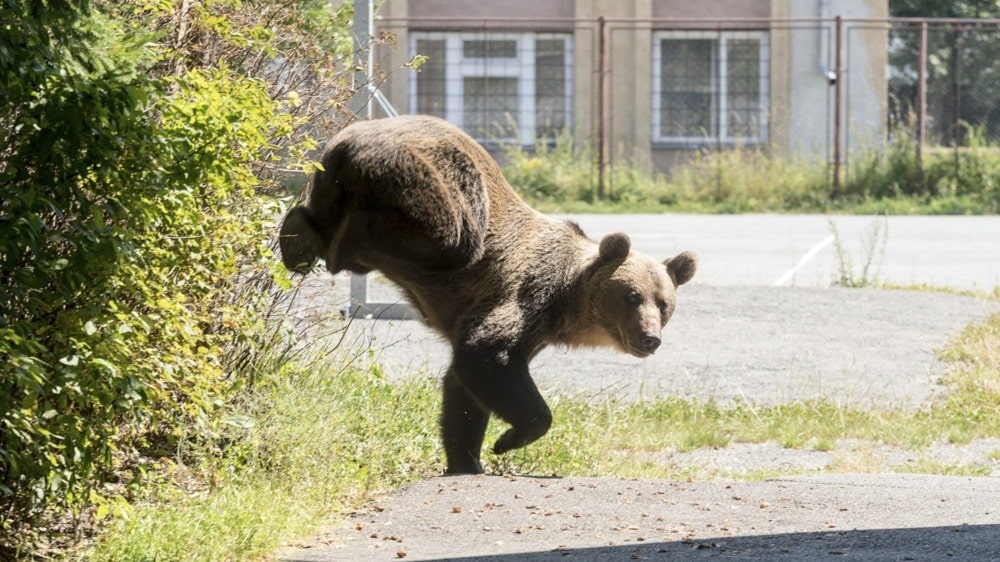
A male brown bear at the courtyard of the Octavian Goga high school in the Transylvanian city of Csikszereda, or Miercurea Ciuc in Romania, August 2018. Photo: EPA/NANDOR VERES.
The Romanian government on Thursday approved emergency measures allowing authorities to swiftly shoot or euthanize bears that enter towns and villages, as incidents of human-wildlife conflict escalate.
Under the new draft regulation, intervention teams, including police, gendarmes and specially trained units, will be allowed to use lethal force immediately if a bear is judged to pose a threat to people or property. This marks a significant departure from the current rule, which mandates a gradual approach: first attempting to scare the animal away or tranquilize it before considering more drastic action.
The only exception would be cubs younger than one year old, which cannot be shot under the proposed rules.
Officials say the change is necessary as bear sightings near homes – and attacks on humans – have increased in recent years. “We hope the new measures will better protect people in rural and mountain communities, while also safeguarding biodiversity,” Environment Minister Diana Buzoianu said.
She added that the government is under pressure from local authorities who say the existing procedures are too slow and are often ineffective in emergency situations.
The draft law also introduces significant fines, ranging from 2,000 to 6,000 euros, for people caught feeding bears in the wild, a practice that experts say encourages them to lose their natural fear of humans and venture into populated areas in search of food.
Until now, the fine for such offences was only about 100 euros, and this year authorities issued just 18 penalties, even though the number of cases was significantly higher.
Environmental groups have yet to respond to the government’s announcement, but the policy shift is expected to spark debate over the balance between human safety and wildlife conservation.
Critics have already warned that the new measures could further endanger Romania’s bear population, which is the largest in Europe.
Romania is home to around 10,000 animals in the wild, although the country’s natural habitats can sustainably support only around 4,000, from biological, social and economic perspectives.
After a fatal bear attack on a hiker last year, the Romanian parliament increased the annual bear-hunting quota to 481, more than doubling the previous limit.
Bears have also become a political issue at elections in Romania and Slovakia, with populists keen to portray the wild animals as a danger to the public needing to be killed.